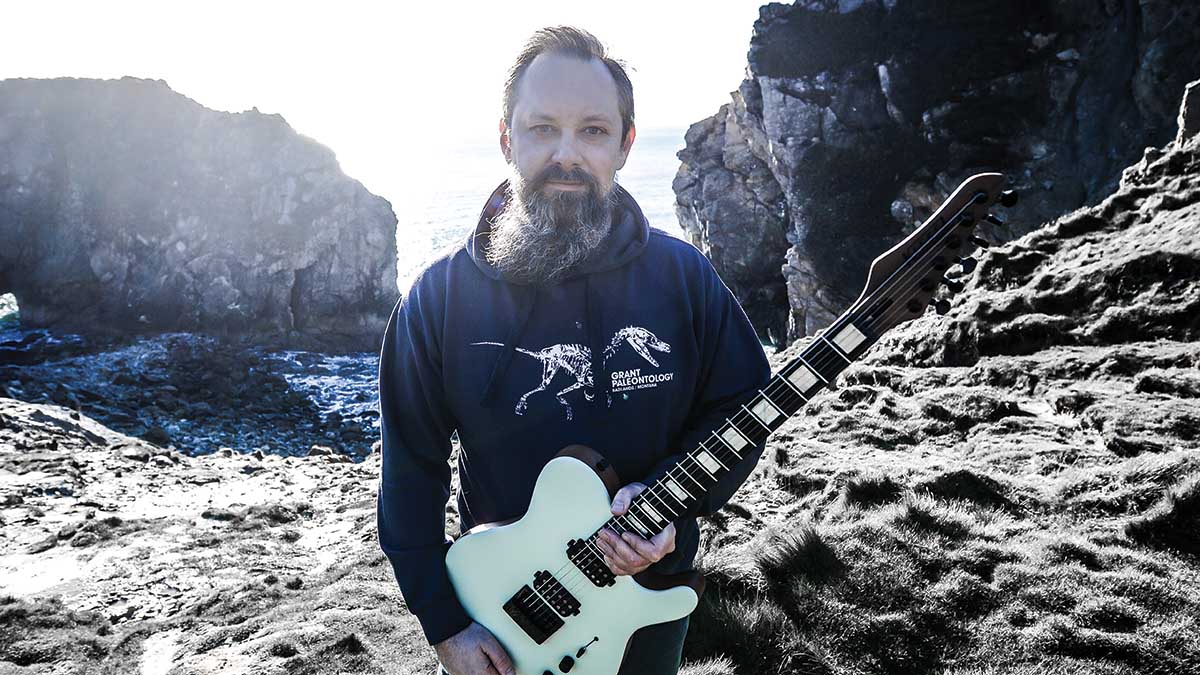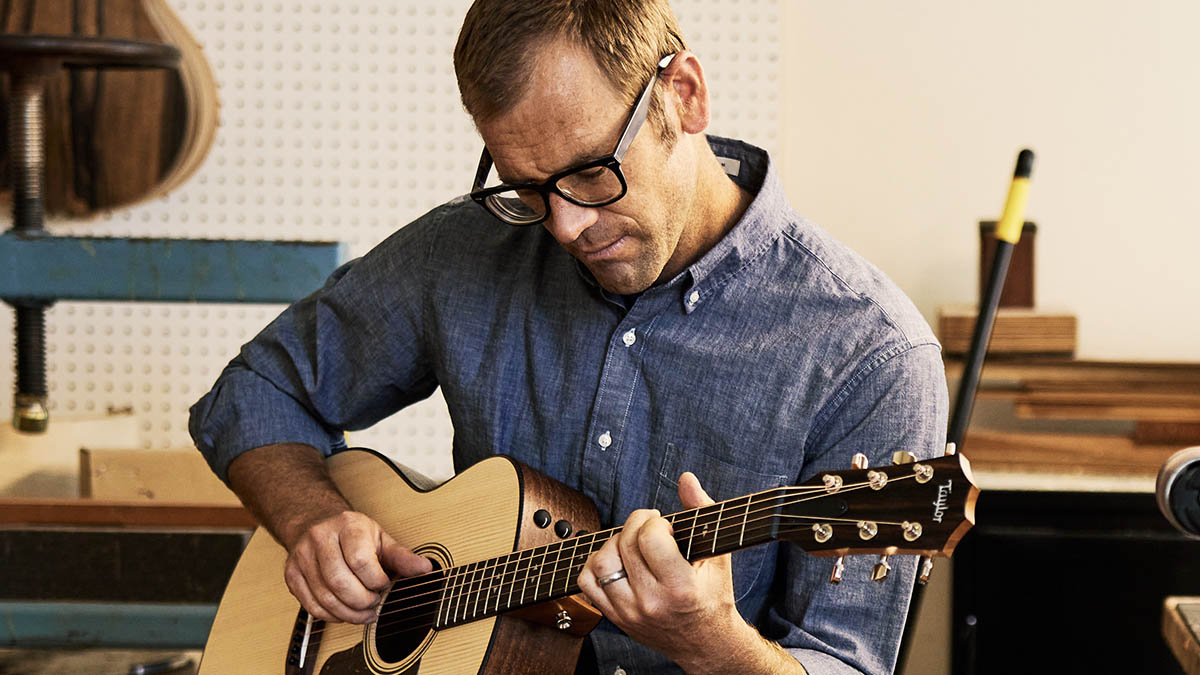Charlie Griffiths: “Everyone knows the blues scale – just move it up a semi-tone from your root note and you get a whole new lease on life”
Well of course the Haken guitarist wants to talk scales; his debut solo album is inspired by a fish! And it is a stylistically omnivorous work that sees him swap eight strings for six

Haken guitarist Griffiths’ new Tiktaalika solo album is all about evolution. Its title nods to the 375-million-year-old Tiktaalik fish species that was able to prop itself up and stand on its sturdy fins, acting as a transitional class between ocean-bound fish and four-legged land-walkers. Griffiths is taking an epic leap of his own with his first-ever solo release.
While initially conceived as a 20-minute suite, Tiktaalika ultimately grew into a nine-song fever dream that merges Haken-style complexity with elements of Bay Area thrash, girder-folding metalcore and djent-jazz fusion.
Despite the artistic growth, Griffiths technically devolved his playing style by snipping a pair of strings off his usual eight-string approach.
“After 10 years of focusing on eight-string playing with Haken, it was kind of a different viewpoint,” Griffiths says of scaling down, noting that the six-string Kiesel Type-X used on the sessions was set to a comparatively less subsonic, but still chewy drop-D. “When your hands get used to [an eight-string’s] wider neck and longer scale, it almost does feel like a toy guitar when you pick up the six-string again, [but] you have fun doing wide stretches; bending strings is much easier.”
In terms of tone, Griffiths dove into the gnarly whammy and phaser effects of Neural DSP’s Archetype: Gojira plug-in for much of Tiktaalika’s elastic leadwork.
While the guitarist erupts with blistering runs and rubber-room vibrato on centrepiece In Alluvium, Griffiths admits he also cut what had initially been one of the album’s biggest leads in half so that Dream Theater’s Jordan Rudess could tag in for an equally warp-speed synth solo.
Elsewhere, Griffiths alters our perception of a classically bluesy, Kirk Hammett-style wah solo by shifting into the Indian Pantuvarali scale on Tiktaalika’s title track (“Everyone knows the blues scale – just move it up a semi-tone from your root note and you get a whole new lease on life”).
All the latest guitar news, interviews, lessons, reviews, deals and more, direct to your inbox!
Vintage thrash is nevertheless baked into Griffiths’ DNA – as evidenced when he drastically flips the fanciful optimism of an acoustic melody towards psyche-drilling trills and rapid-fire chugging on its opening Prehistoric Prelude.
“I’ve always loved those kind of thrash albums that start with an acoustic intro, like Forbidden’s Twisted into Form or Master of Puppets,” Griffiths says, proudly adding of his contribution to the canon, “It starts all nice and pretty with the acoustic guitars, but of course that thrash riff has to slam in and take you by the throat.”
- Tiktaalika is out now via Inside Out.
Gregory Adams is a Vancouver-based arts reporter. From metal legends to emerging pop icons to the best of the basement circuit, he’s interviewed musicians across countless genres for nearly two decades, most recently with Guitar World, Bass Player, Revolver, and more – as well as through his independent newsletter, Gut Feeling. This all still blows his mind. He’s a guitar player, generally bouncing hardcore riffs off his ’52 Tele reissue and a dinged-up SG.



